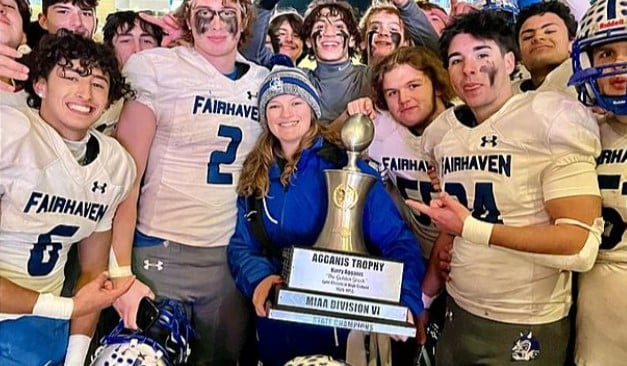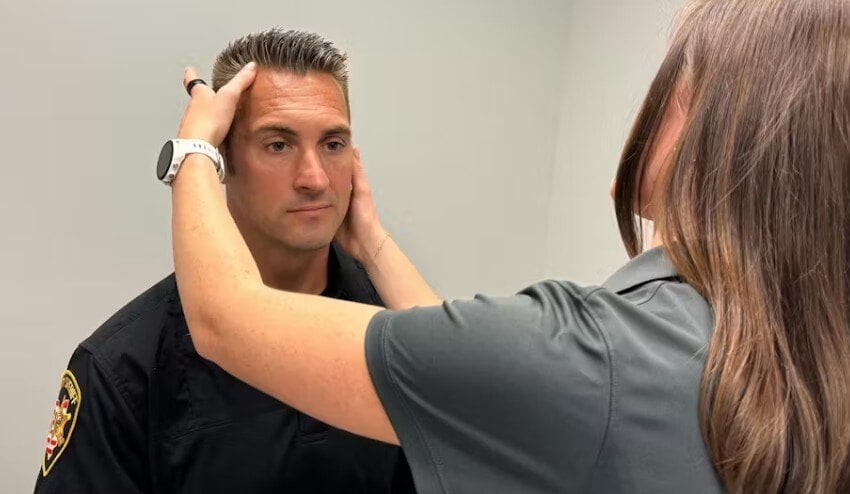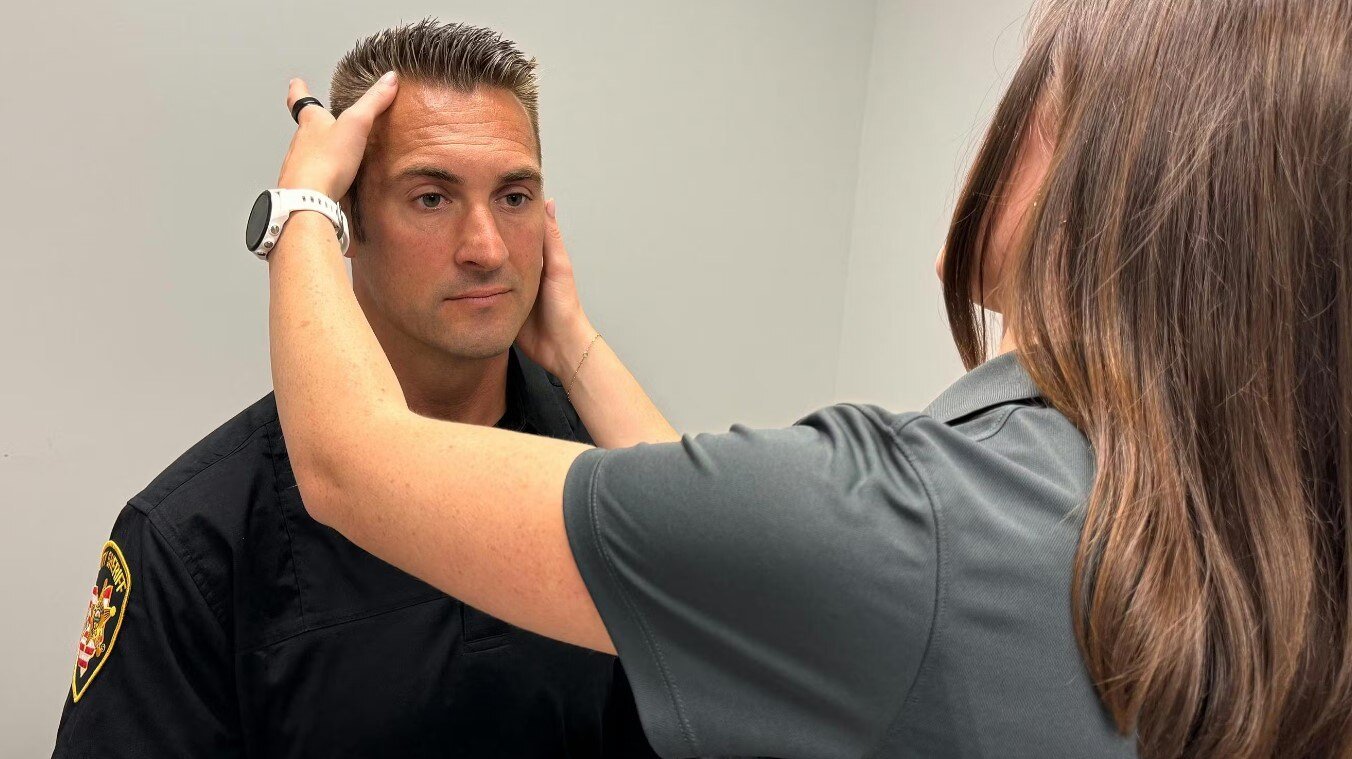How U of M is Helping Tackle Athlete Concussions
 When Catherine Vick, a 10th grader at Paw Paw High School in Michigan, experienced repeated blows to her head during cheer practice last fall, she tried to shrug it off. However, persistent headaches in the days following hinted at a more significant issue. It turned out she had suffered a concussion.
When Catherine Vick, a 10th grader at Paw Paw High School in Michigan, experienced repeated blows to her head during cheer practice last fall, she tried to shrug it off. However, persistent headaches in the days following hinted at a more significant issue. It turned out she had suffered a concussion.
 Sadly, Vick's story isn't unique. According to research from the University of Michigan (U-M), around 25% of adolescents reported having at least one concussion in 2020, a figure up from 20% in 2016.
Sadly, Vick's story isn't unique. According to research from the University of Michigan (U-M), around 25% of adolescents reported having at least one concussion in 2020, a figure up from 20% in 2016.
The statistics are alarming, but they have catalyzed a significant shift in how sports-related concussions are approached in Michigan.
Recognizing the need for greater concussion awareness, the Michigan High School Athletic Association (MHSAA) collaborated with the U-M Concussion Center.
As a result, they developed the Michigan Sports-Related Concussion Training Certificate. This certificate program equips coaches, volunteers, and even parents with the latest knowledge about concussions.
Steven Broglio, director of the U-M Concussion Center, emphasizes that there's a pressing need to dispel the prevalent myths about concussions.
The partnership's main aim is to inform everyone, from athletes to administrators, about the realities of concussions, including how to identify, manage, and seek appropriate treatment for them.
10% of high school athletes may suffer a concussion during their sports career. While contact sports like football are often associated with these injuries, women’s soccer and other contact sports see similar numbers.
Stefanie Miller, a teacher and cheerleading coach at Paw Paw High School, notes the perceptual shift in the past decade.
Once, concussions might've been brushed off as merely "getting your bell rung", but today, they're treated with the gravity they deserve. The research-based concussion training from MHSAA and U-M has played a pivotal role in this paradigm shift.
MHSAA executive director, Mark Uyl, acknowledged that seeking expertise from the Michigan Concussion Center has been crucial. Their collaboration ensures that high schools across the state have access to the best possible resources regarding concussions.
The raised awareness and training on concussions haven't just changed protocols; they've transformed mindsets. Andrew Pratley, a high school football coach, asserts that these guidelines make games safer by minimizing risks and ensuring that injured athletes receive the proper care.
When Catherine Vick's symptoms persisted, her father, John Vick, who has a background in medical training, was quick to assess her condition. His timely intervention and the dedicated concussion protocols in place ensured her swift recovery.
Such instances underscore the importance of heightened concussion awareness in high school sports. By prioritizing athlete health and arming coaches, parents, and volunteers with the right knowledge, Michigan is paving the way for safer sports experiences for its students.
![HR Logo [Recovered]_Full Color Vertical-1](https://blog.healthyroster.com/hs-fs/hubfs/HR%20Logo%20%5BRecovered%5D_Full%20Color%20Vertical-1.png?width=199&height=178&name=HR%20Logo%20%5BRecovered%5D_Full%20Color%20Vertical-1.png)
 By
By


